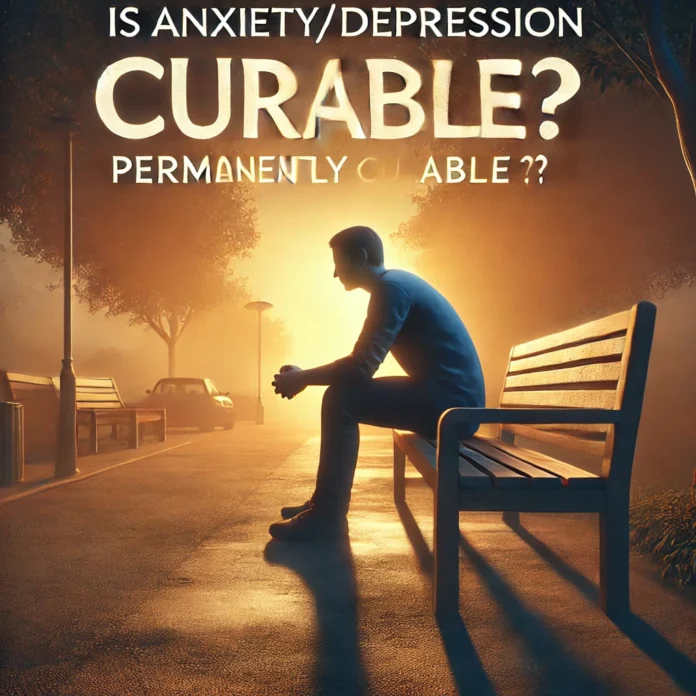Anxiety and depression are among the most common mental health disorders, affecting millions of people worldwide. While treatment options have advanced significantly, many individuals wonder: Is anxiety or depression permanently curable? The answer is complex and depends on various factors, including the individual’s condition, treatment approach, and lifestyle.
Understanding Anxiety and Depression
What is anxiety?
Anxiety is a natural response to stress or danger. However, when anxiety becomes persistent, excessive, or uncontrollable, it can develop into an anxiety disorder. Common types of anxiety disorders include:
- Generalized Anxiety Disorder (GAD): chronic worry about everyday life.
- Panic Disorder: sudden episodes of intense fear.
- Social anxiety disorder: fear of social interactions.
- Obsessive-Compulsive Disorder (OCD): repetitive thoughts and behaviors.
What Is Depression?
Depression is a mood disorder that affects emotions, thoughts, and daily functioning. Symptoms may include:
- Permanent sadness or hopelessness
- Loss of interest in activities
- Fatigue and low energy
- Changes in sleep and appetite
- Difficulty concentrating
Can Anxiety and Depression Be Permanently Cured?
The idea of a permanent cure for anxiety and depression is debated among medical professionals. These conditions can be effectively managed, and some people may experience complete remission. However, the possibility of recurrence remains, making long-term management crucial.
Factors That Influence Recovery
-
Early Diagnosis and Treatment
- Seeking professional help early improves outcomes.
- Therapy, medication, and lifestyle changes play key roles.
-
Treatment Approach
- Cognitive Behavioral Therapy (CBT): Helps change negative thought patterns.
- Medication: Antidepressants and anti-anxiety drugs can regulate brain chemistry.
- Holistic Approaches: Mindfulness, exercise, and proper nutrition contribute to recovery.
-
Lifestyle and Coping Strategies
- Regular exercise boosts mood and reduces stress.
- Healthy Diet: Nutrient-rich foods support brain function.
- Stress Management: Meditation, deep breathing, and relaxation techniques help maintain mental well-being.
-
Genetic and Biological Factors
- Some individuals have a genetic predisposition to anxiety and depression.
- Brain chemistry and hormonal imbalances may influence the severity of symptoms.
-
Understanding Genetics: The Science of Heredity Genetics is the study of genes, genetic variation, and heredity in organisms. It is a fundamental branch of biology that explains how traits are passed from one generation to another. Heredity plays a crucial role in shaping an organism’s physical and biological characteristics, influencing everything from eye color to disease susceptibility.
-
Environmental and Social Support
- A positive environment and strong social connections aid recovery.
- Chronic stress, trauma, or unresolved emotional issues can trigger relapses.
Managing Anxiety and Depression for Long-Term Wellness
1. Ongoing Therapy and Support
Regular counseling or therapy helps individuals develop coping mechanisms and resilience.
2. Medication Management
For some, medication may be a long-term solution. Others may gradually reduce usage under medical supervision.
3. Healthy Daily Habits
- Prioritizing sleep
- Staying physically active
- Engaging in social activities
- Practicing gratitude and mindfulness
4. Awareness and Education
Understanding the condition helps individuals recognize triggers and take proactive steps.
Final Thoughts
While anxiety and depression may not always have a permanent cure, they are highly treatable and manageable. Many people recover fully, while others learn to control symptoms effectively with therapy, medication, and lifestyle changes. The key to long-term well-being lies in early intervention, consistent treatment, and self-care.
If you or a loved one is struggling with anxiety or depression, seeking professional help is the first step toward recovery. Mental health is a journey, and with the right support, a fulfilling life is possible




